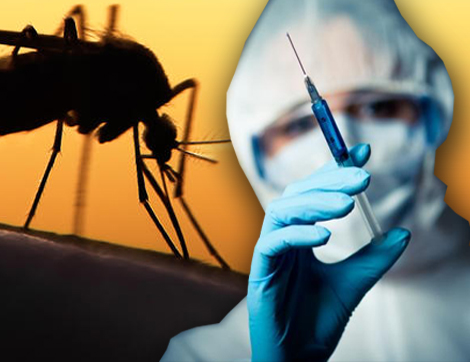
As if the record of science, government, and health isn’t bad enough, biotech companies have now engineered mosquitoes to carry a death gene that will cause their offspring to die before reaching adulthood. “What can possibly go wrong?” ask those who are skeptical of genetic tinkering and aware of the abysmal failure of establishment claims.
By James Spounias
Genetically engineered (GE) insects are part of the package of solutions that will be foisted upon us per Congress’s $1.1 billion appropriation to fight the well-hyped Zika virus scare.
GE mosquito manipulation has been in the works for a while, spurred by globalist Bill Gates’s foundation gift of $19.7 million to fund the “study” of GE mosquitoes, according to Science Magazine, Nov. 16, 2010.
Zika fear-mongering is helping fuel the coffers of leading biotech “Frank-insect” company Oxitec, which plans to unleash GE insects to fight Zika and other diseases.
But there could be some pushback against the tide of GE mosquitoes, in light of court documents from the Cayman Islands released on Sept. 30, as well as mobilization by residents of Cedar Key and Monroe County, Fla. who will be casting votes on Nov. 8 against the use of GE mosquitos in a ballot initiative.
Emigrate While You Still Can! Learn More . . .
The Cayman court documents suggest that Oxitec’s use of GE mosquito species Aedes aegypti may be increasing the number of an equally, possibly more virulent disease carrying variety, the Aedes albopictus species—known as the Asian Tiger mosquito—according to four environmental and food safety groups, including International Center for Technology Assessment, GeneWatch UK, Food and Water Watch, and Friends of the Earth.
Food and Water Watch cited independent studies and Oxitec’s own literature that warn 3%-4% of the GE mosquitos survive, “with unknown impacts on the environment,” and that even though Oxitec claims only male mosquitos will be released—intended to be reassuring, because only females bite and spread disease—Oxitec’s own documents reveal that it cannot prevent up to 1% of GE female mosquitos being released.
Food and Water’s other concerns stem from the fact that lab-bred GE mosquitos “can evolve resistance to the lethal gene,” that the bites from female mosquitos could cause allergies, and that “disease transmitted by mosquitos could evolve to become more dangerous.”
Those who value our ecosystem are skeptical of the supposed promise of GE mosquitoes. For instance, Wenonah Hauter of Food and Water Watch company to sell a technology to reduce one mosquito species, so then they can also sell a technology to deal with the species that replaces it . . . but it’s not worth the effort, expense, and potential risk for communities in the U.S. to start down this path.”
The public interest groups also note the risks of using a single species of mosquito are no surprise to Oxitec. The company’s 2014 application to the Cayman Islands Department of Environment states, “Should Aedes albopictus begin to occupy the Aedes aegypti niche upon reduction in their numbers, a concurrent operation will begin to reduce the numbers of Aedes albopictus.”
Dr. Helen Wallace, director of GeneWatch UK, stated on Sept. 30: “Current permits for releases should now be revoked until regulators recognize the downsides of Oxitec’s technology and the need to consider all the impacts on the ecosystem. The consequences of mass releases of GE mosquitoes could be harmful if other disease-carrying mosquito species move in as a result. Risk assessments in Brazil, the Cayman Islands, and the USA need to be revised.”
Florida residents are mobilizing against GE mosquitos for many of the same reasons.
Ed Russo of the Florida Keys Environmental Coalition, quoted by Bloomberg.com Oct. 6, noted the irony that one needs government permission, by way of an environmental impact statement (EIS), to “take down one tree in a wetland. And these clowns don’t want to do an EIS [for GE mosquito release]. And we’re considered anti-science.”
Russo observed that even prisoners are required to give consent before being subjected to experiments. Mila de Mier, a real estate broker and activist, had to threaten legal action to get the government to provide hard data on the actual number of Aedes aegypti in Key Haven, Fla. She learned there were “practically none,” certainly not enough of the mosquitos even to require the spraying of pesticides, according to Bloomberg.
Ms. Mier stated she and other Florida residents were shocked at what happened in Brazil, where the release of GE mosquitoes wasn’t subjected to scrutiny. Ms. Meier told Bloomberg: “I saw what they did in Brazil. They brought a truck around with a loudspeaker, and they made a song. ‘God sent you the mosquito to heal you.’ That was the public engagement.”
Dr. John Norris, a Florida physician, cited as another basis for concern the fact that the GE mosquitoes are doused with the antibiotic tetracycline, which feeds into the pervasive problem of antibiotic resistance. Norris was quoted by Bloomberg as stating, “The tetracycline is going to cause resistance.
They care nothing about the fact that they are breeding resistant germs of no purpose.” While Oxitec and others dismiss the complaints of citizens and those scientists that are untethered to the corporatist-science establishment, those of us who are well aware of the assault of GMO foods, pesticides, herbicides, electrical pollution, and other problems virtually ignored by the “establishment” are also concerned about the use of GE mosquitoes.
The precise dangers from GE insects are unknown to us, but, given the track record of the usual suspects who notoriously cover up damaging side effects, no amount of speculation as to hazards, let alone malicious use of such technology, is unwarranted.
James Spounias is the president of Carotec Inc., originally founded by renowned radio show host and alternative health expert Tom Valentine.


How can this stuff be outlawed?